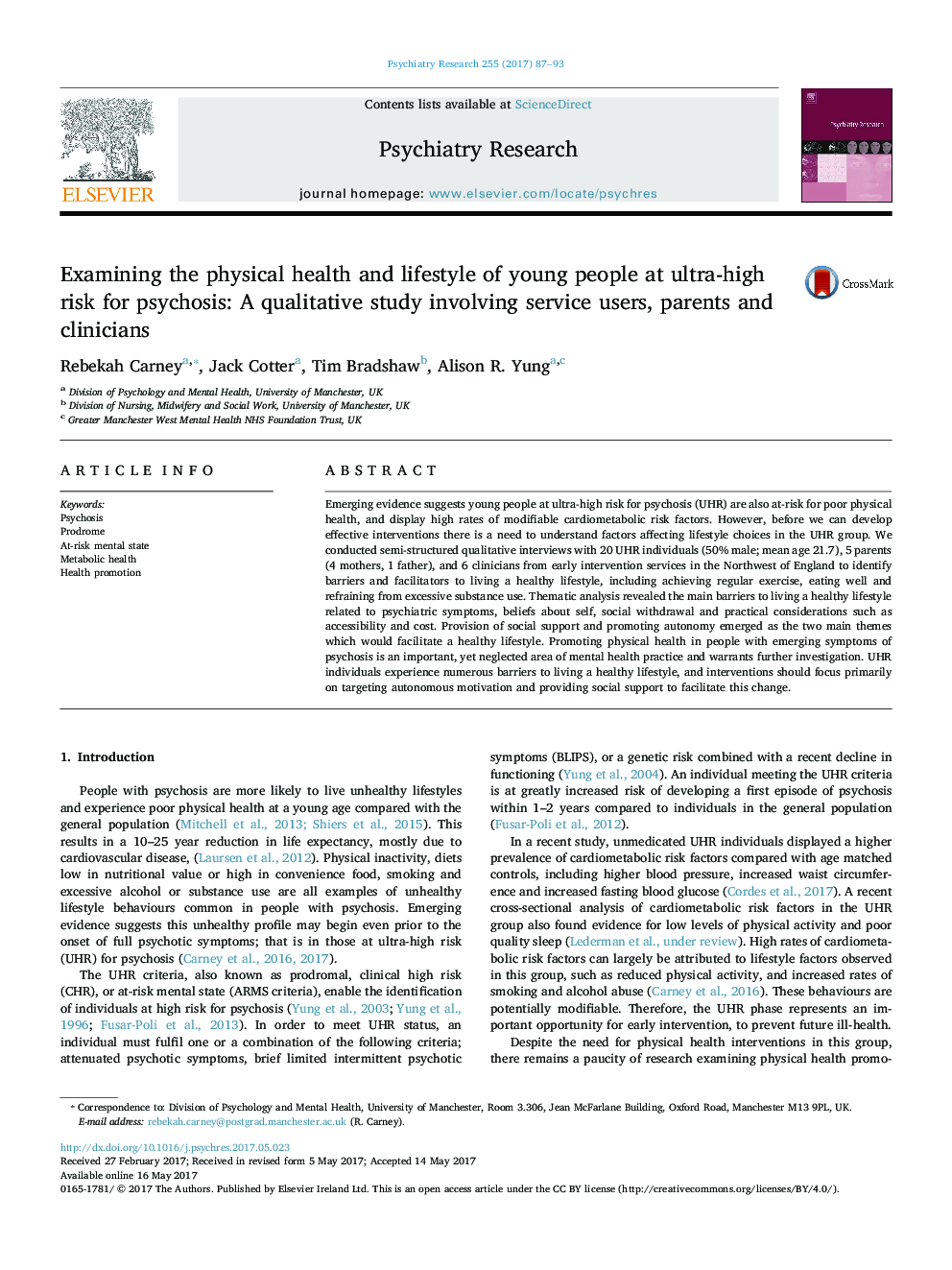| کد مقاله | کد نشریه | سال انتشار | مقاله انگلیسی | نسخه تمام متن |
|---|---|---|---|---|
| 4933180 | 1433791 | 2017 | 7 صفحه PDF | دانلود رایگان |
- UHR individuals experience a wide range of barriers to living a healthy lifestyle.
- Psychiatric symptoms, social withdrawal, self-belief and practical factors are all barriers.
- Social support and promoting autonomy are seen as facilitators of a healthy lifestyle.
- Interventions targeting motivation and using social support may be useful for this group.
Emerging evidence suggests young people at ultra-high risk for psychosis (UHR) are also at-risk for poor physical health, and display high rates of modifiable cardiometabolic risk factors. However, before we can develop effective interventions there is a need to understand factors affecting lifestyle choices in the UHR group. We conducted semi-structured qualitative interviews with 20 UHR individuals (50% male; mean age 21.7), 5 parents (4 mothers, 1 father), and 6 clinicians from early intervention services in the Northwest of England to identify barriers and facilitators to living a healthy lifestyle, including achieving regular exercise, eating well and refraining from excessive substance use. Thematic analysis revealed the main barriers to living a healthy lifestyle related to psychiatric symptoms, beliefs about self, social withdrawal and practical considerations such as accessibility and cost. Provision of social support and promoting autonomy emerged as the two main themes which would facilitate a healthy lifestyle. Promoting physical health in people with emerging symptoms of psychosis is an important, yet neglected area of mental health practice and warrants further investigation. UHR individuals experience numerous barriers to living a healthy lifestyle, and interventions should focus primarily on targeting autonomous motivation and providing social support to facilitate this change.
Journal: Psychiatry Research - Volume 255, September 2017, Pages 87-93
